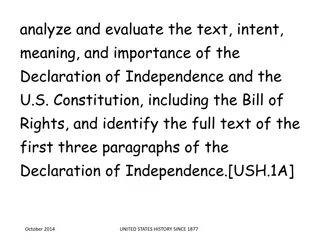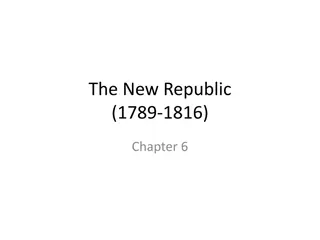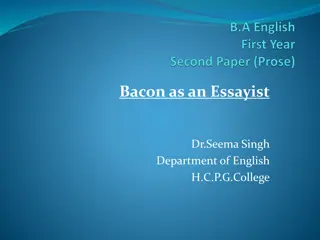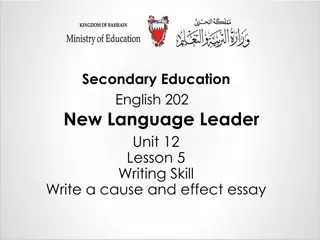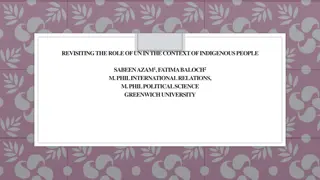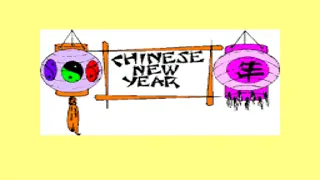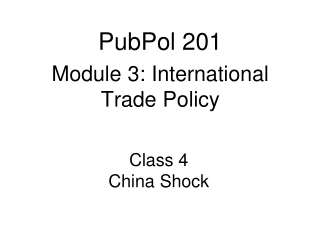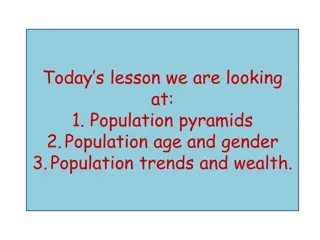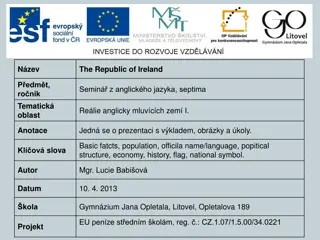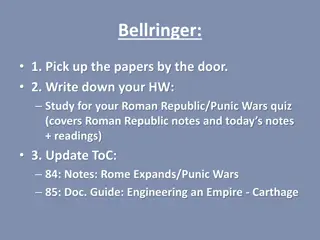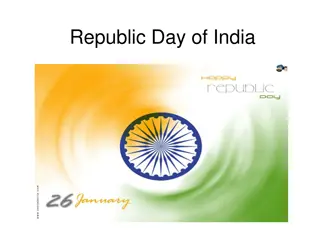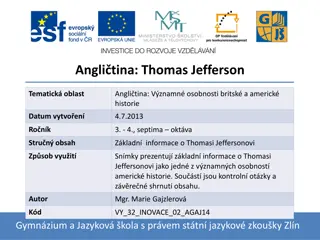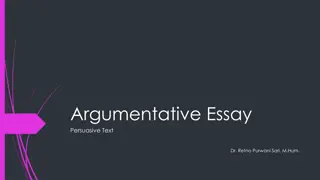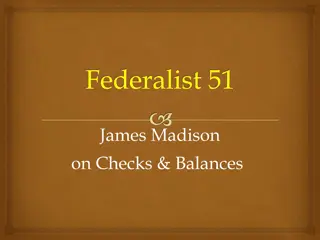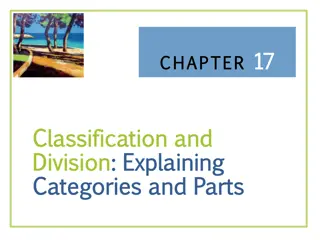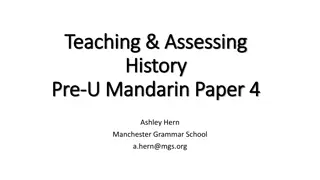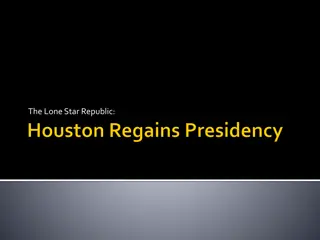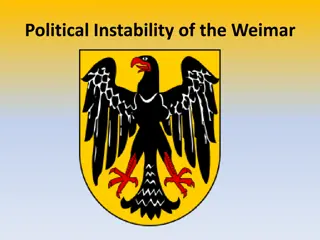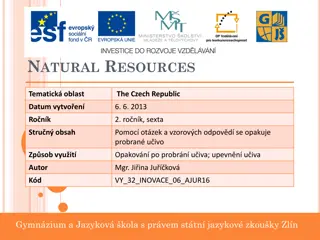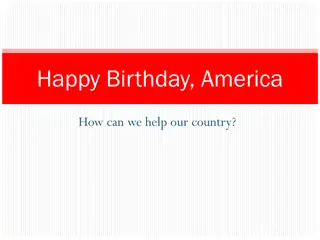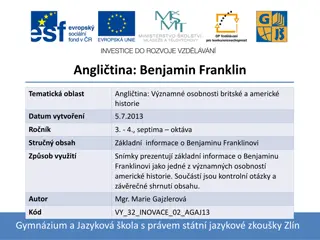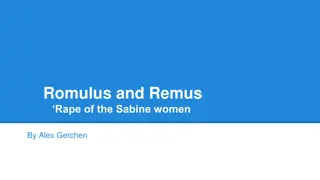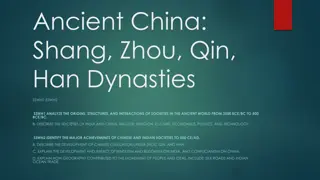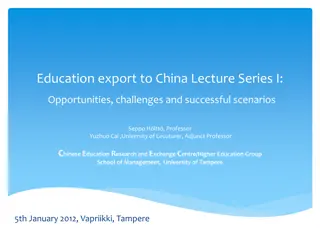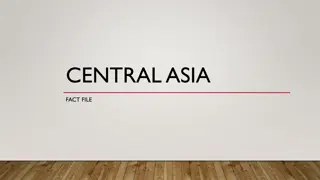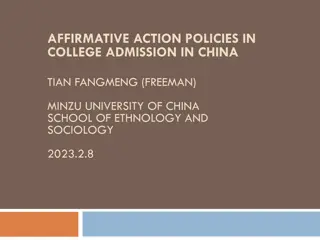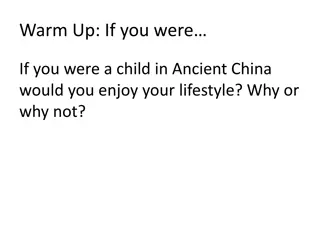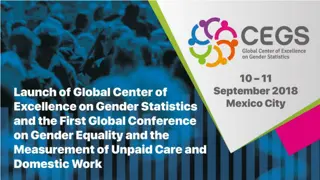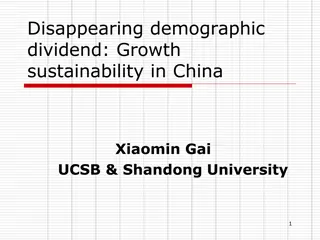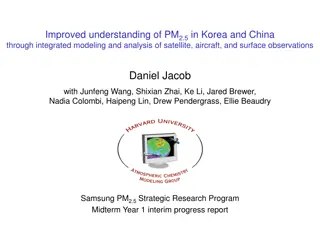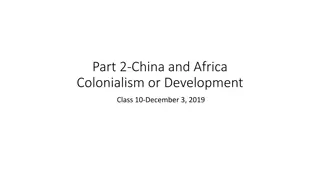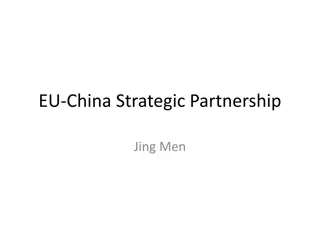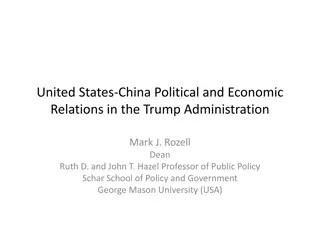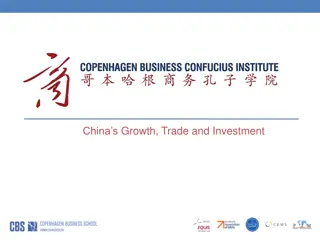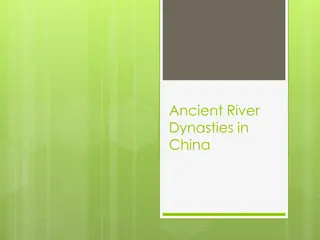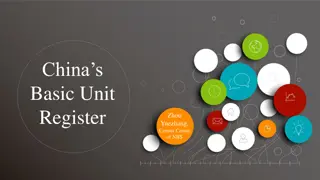Strategies for Teaching History Essays on the Founding of the People's Republic of China
Prepare students to write history essays on Chinese culture and the establishment of the People's Republic of China. Focus on key skills like explaining evidence, analyzing historical events, and understanding the role of political and social reforms in the early years of the PRC.
Uploaded on Sep 11, 2024 | 0 Views
Download Presentation

Please find below an Image/Link to download the presentation.
The content on the website is provided AS IS for your information and personal use only. It may not be sold, licensed, or shared on other websites without obtaining consent from the author. Download presentation by click this link. If you encounter any issues during the download, it is possible that the publisher has removed the file from their server.
E N D
Presentation Transcript
Exam Success: How to prepare students to write History Essays Chinese Culture: The Founding of the Peoples Republic of China
1. Knowledge Key Skill: Explaining evidence in relation to the question Agricultural cooperativization is the socialist course that makes everybody prosperous, 1956
PRC: The Early Years - Political and Social Reform Problem WWMD? What did Mao do? How successful was Mao? Order and Control: 37 years of warlord rule has produced social disintegration and criminal habits on a vast scale. It has been estimated that there were 1 million bandits in the countryside by 1949. Thieves and gangsters stalked the cites and many women turned to prostitution as a means of survival. There were also many ex-GMD sympathisers who had not managed to escape to Taiwan. Foreigners: there are still many foreigners living and working in China. The regime is VERY suspicious of them. The Bureaucratic / Capitalist Class: it s 1952 and you are concerned that there are still remnants of this class of people in China. Political Parties: there are still multiple political parties which worries you. The general population: you are worried about the way the population are thinking. Are they plotting against you? Are they having un-communist thoughts? Are they supporting other parties / political groups? The middle class: you are increasingly worried about China s bourgeoisie. You have used them to help settle the teething problems of the PRC. However you are determined to turn China into a fully Marxist state in which only one class will exist the proletariat (revolutionary workers). Who are you ruling? You are worried about the lack of information you have about your population. WWMD? You are concerned about the position of women in china. In a truly communist society all citizens should be equal.
1. Knowledge: Review Task for Students Explaining evidence in relation to the question Look through this activity completed by one of my students. Highlight / Underline: 1. What has she done really well? 2. Could any thing be improved?
2. Approaches to Planning Topic? What is the question asking you to do? Factors? Answer the question How far do you agree with the statement that the early 1950s was a golden age when China was truly at peace ? Early years of the PRC Judgement on whether China was at peace in the early years of the PRC 1. National Government Structures (peace) 2. Social order getting rid of gangs etc. (peace) 3. Land reform redistribution (pleases peasants but less pleasant for landowners) 4. Foreigners (not peaceful) 5. Korean War (not peaceful) Overall, in some respects the 1950s were a Golden Age when China was at peace due to the new focus on law and order and national government. However, it would be wrong to judge China as being truly at peace as the PRC revolution did bring turmoil to the lives of foreigners and rich landowners. To what extent was the Chinese Communist Party successful in revolutionising the education of the population in the period 1949-56? What methods did the new government of the People s Republic of China use to achieve political control (1949-1956)? How successful were these methods? How far would you agree that the role of the Soviet Union was crucial in the early years of the People s Republic of China (1949-56)? How far were the policies and ideology developed in the Yan anperiod implemented in the early years of the People s Republic of China?
2. Approaches to Planning Topic? What is the question asking you to do? Factors? Answer the question To what extent did the Second United Front against Japan (1937-45) give the Chinese Communist Party valuable breathing space? Mao described the Red Army as the fish who swam in the sea , the sea being the Chinese peasants. To what extent is the relationship with the peasantry fundamental to the Chinese Communist Party s ultimate victory over the Japanese and the Guomindang? To what extent did the wider international situation (1937-49) help to ensure that the Communist Party of China won the Civil War, leading to the founding of the People s Republic of China?
2. Approaches to Planning How far would you agree with the view that role of the Red Army was the most important factor in the development of the CCP in the period from 1935-1945? Introduction: One key factor in the development of the CCP in the period 1935-45 was This was when This was key to the development of the CCP in the period 1935-45 because Comparison to most important factor The role of the Red Army at Yanan Mao had prioritised consolidating the military force of the CCP. Traditionally soldiers had a poor reputation in Chinese society. Mao instructed the Red Amy to behave differently and thus he laid down a code of conduct for his troops it endeared the Red Army to the rural population whose previous experience of marching armies had been bitter. This sensitivity of the army to the peasants played a key role in the growth of the party from 40,000 in 1937 to 1 million by 1945. However, the role of the Red Army was not as important as Mao s leadership as it was Mao s vision which drove the positive transformation of the Red Army. Mao s political idea s Communist control in the countryside The Rectification of Conduct Campaign Conclusion:
Introductions Answer the question Context Factors Overall (most important or JU on success) How far do you agree with the statement that the early 1950s was a golden age when China was truly at peace ? To what extent did the Second United Front against Japan (1937-45) give the Chinese Communist Party valuable breathing space? What methods did the new government of the People s Republic of China use to achieve political control (1949-1956)? How successful were these methods? How far would you agree that the role of the Soviet Union was crucial in the early years of the People s Republic of China (1949-56)?
Conclusions Overall (answer the question refer to most important factor OR make and overall JU on success) BECAUSE Refer to other factors discussed Therefore Mao described the Red Army as the fish who swam in the sea , the sea being the Chinese peasants. To what extent is the relationship with the peasantry fundamental to the Chinese Communist Party s ultimate victory over the Japanese and the Guomindang? To what extent was the Chinese Communist Party successful in revolutionising the education of the population in the period 1949-56? To what extent did the wider international situation (1937-49) help to ensure that the Communist Party of China won the Civil War, leading to the founding of the People s Republic of China? How far were the policies and ideology developed in the Yan anperiod implemented in the early years of the People s Republic of China?
4. Writing Look through this essay. Underline or highlight the following: Introduction Has the question been answered? Is there some contextual knowledge about the period? Have the factors been introduced? Paragraphs Precise evidence Explaining the evidence in relation to the question Mini-conclusion at the end of the paragraph (summing up what has been discussed) Conclusion Has the question been answered? Are any relationships between factors explained e.g. X led to Y Is there a hierarchy of judgement e.g. the most important factor / success
5. Marking Annotation Explanation EXAMPLE This was therefore the most important way in which the CCP achieved control because EXP (explain) Evidence has been explicitly explained in relation to the question i.e. the exact words in the question have been used to explain the evidence. Although the CCP s peasant focused policies were important for increasing membership and eventually taking power they were not as important as Mao s leadership as it was Mao who skilfully moulded the party s policy platform. AN (analysis) At the end of a paragraph there is a comparison between factors. Overall, it is clear that Mao s leadership was the most important reason why the CCP was able to gain control by 1949 because it was his ability to adapt communist theory to the Chinese situation alongside revolutionising both the Red Army and agricultural policy that ultimately led the CCP to take control in 1949. J (judgement) An explained judgement in relation to the question


